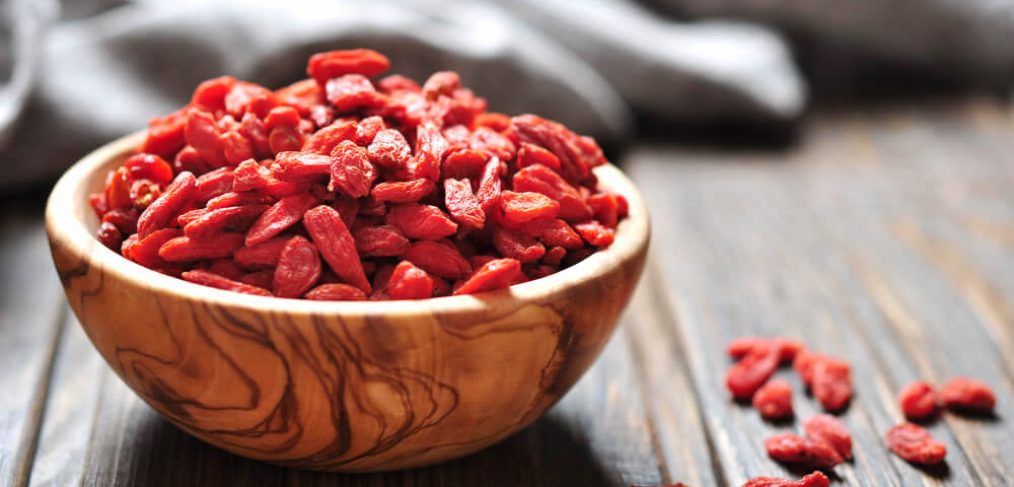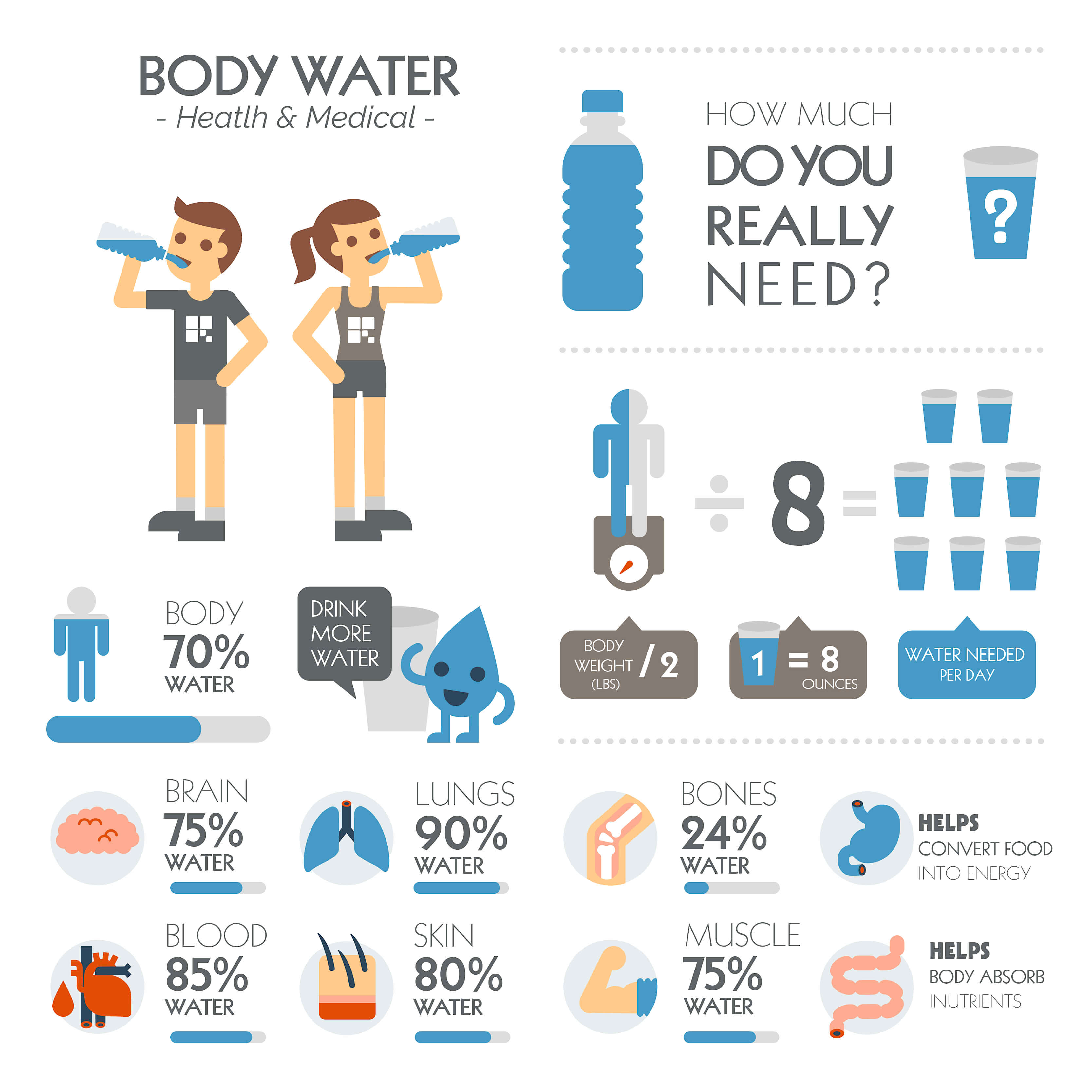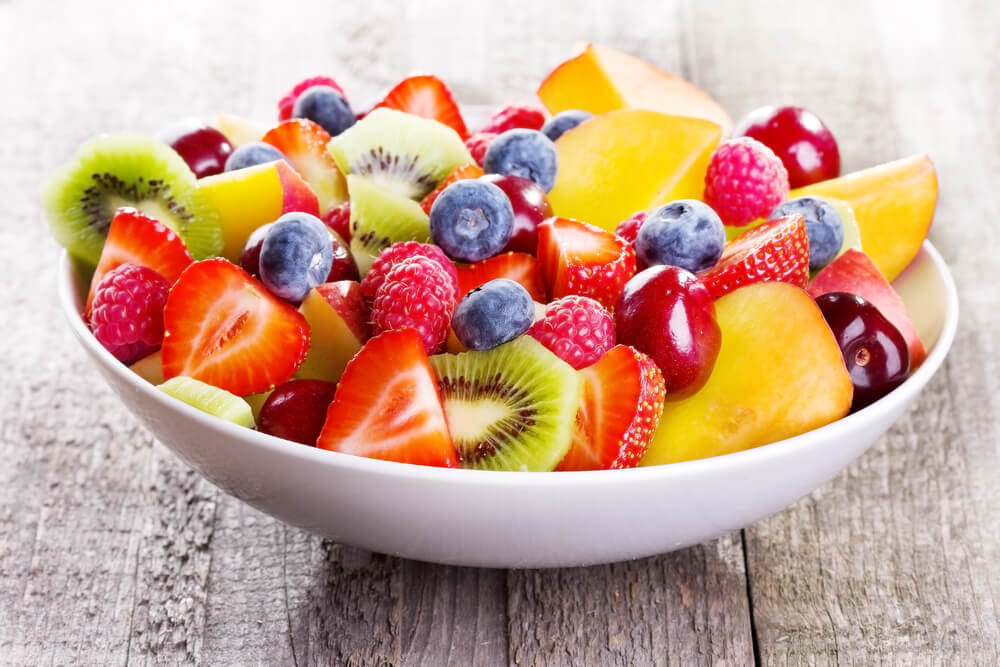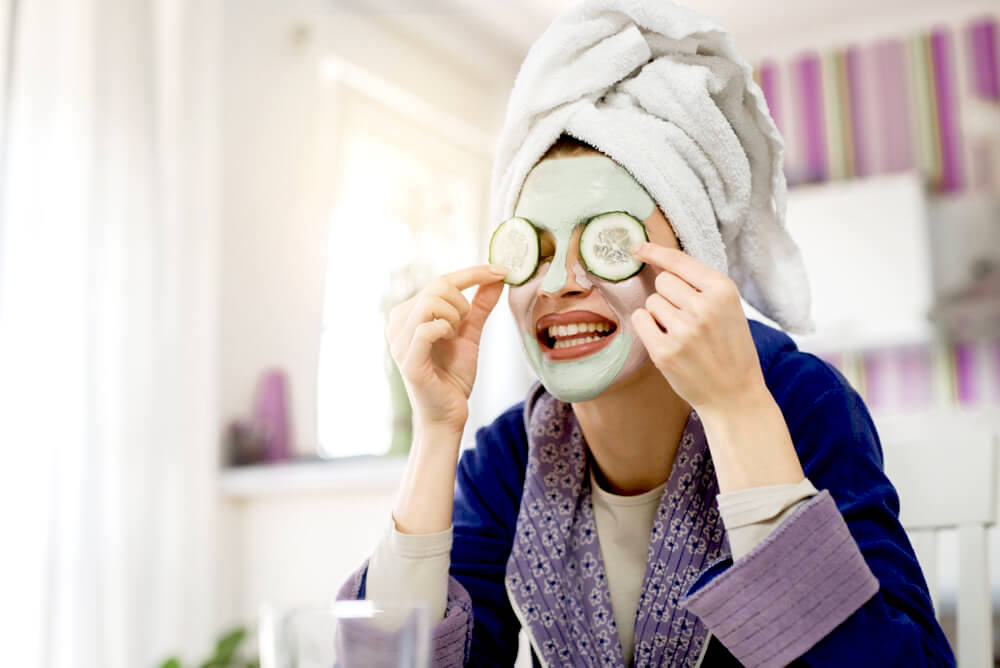If you’ve been paying any attention to the world of health and wellness, maybe you noticed how there isn’t a single health enthusiast out there who isn’t raving about the all-healing power of berries. From hearty oatmeal to colorful fruit bowls to body-charging smoothies, it seems berries have been finding their way into every health-conscious meal plan.
So, how are berries supposed to help our health and beauty, exactly?
Well, these bite-sized nutrients are nature’s very own stockpile of vitamins, which hold a number of immunity-boosting properties that can contribute to your overall well-being. By regularly supplying your body with vitamins, you can help ensure all your vital organs are functioning properly.
Moreover, having more vitamins in your diet doesn’t hurt on the beauty front, either. You heard that right – munching on berries can help you achieve healthy-looking skin, hair and even nails! Read on to find out exactly how.
Strawberries Are a Treasure Trove of Vitamin C
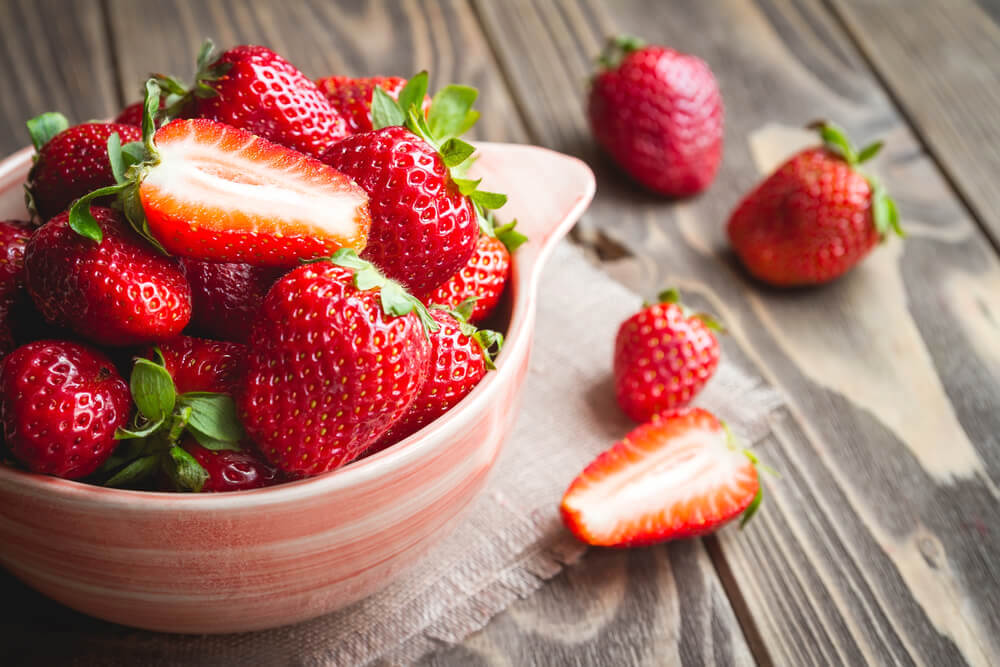
Vitamin C, or ascorbic acid, is the undisputable star among body-boosting nutrients.
Even if you aren’t well-versed in health and wellness trends, you probably already know that Vitamin C can do wonders for improving your immune system.
However, the benefits of upping your Vitamin C intake go way beyond that.
For example, did you know that a regular consumption of this Vitamin can also improve your eyesight, fade your age spots and relieve stress?
And that’s only the beginning.
First of all, Vitamin C can be your best friend when you want to fight off those pesky symptoms of common cold, such as sore throat, coughing and fatigue.
Upping your Vitamin C intake will boost your immunity and help your body in the fight against damaging infections.
Consuming foods with high Vitamin C concentration can also be beneficial for keeping more serious illnesses at bay.
Increased stress levels can also deplete Vitamin C levels in your body, so redressing the balance may help with reducing stress-related symptoms such as over-irritability, fatigue and lack of sleep.
When it comes to beauty benefits, Vitamin C is crucial for the production of collagen, that special little substance that keeps your complexion plump and glowing.
By upping your daily Vitamin C intake, you can help smooth out fine lines, wrinkles, but also minimize dark spots and other symptoms of hyperpigmentation on your skin.
Moreover, Vitamin C can reverse the negative effects caused by free radicals and protect it from additional damage causes by UV rays, pollution and other kinds of harmful environmental factors.
So, how do you make sure you are getting enough of this magic Vitamin C in your day-to-day meals?
We have some good news for you: berries are packed with this immunity-pepping antioxidant.
b, everyone’s favorite springtime treat, make for a great source of this body-healing vitamin.
One serving (a cup) of this palate-pleasing treat contains 80 milligrams of Vitamin C, which is around the exact amount of prescribed daily intake.
Raspberries and blueberries are also rich in Vitamin C. To create a trifecta of this illness-fighting vitamin, combine a handful od strawberries, raspberries and blueberries into a delicious fruit bowl.
Vitamin K Found in Blueberries is a Powerful Antioxidant
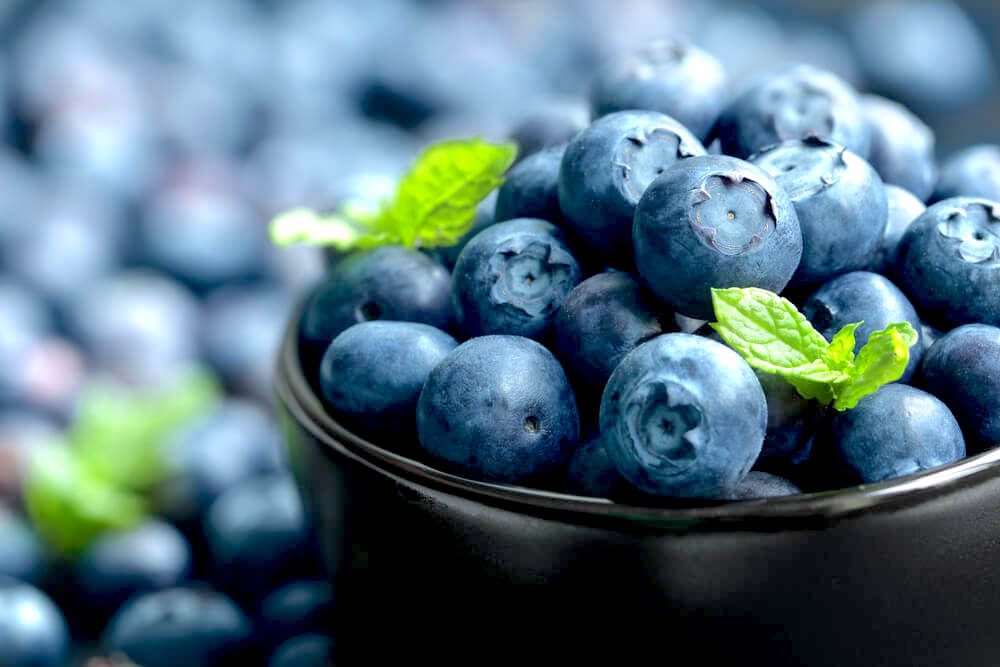
Vitamin K might have been flying under the radar in the past, but these days, all the health freaks are raving about it.
Why is this the case?
Well, this essential vitamin helps keep your body strong on several fronts.
For example, this nutrient can improve the functioning of your cardiovascular system. Since it can promote blood clotting, it is crucial for your body to be replenished with this vitamin in order to be able to heal from bleeding or bruising.
One of the most well-known benefits of Vitamin K is that it can strengthen your bones, and it does so by boosting the amount of protein needed to preserve bone calcium.
Optimal Vitamin K intake can help prevent occurrence of medical conditions such as osteoporosis and bone fracture.
Furthermore, increasing the presence of Vitamin K in your diet can help relieve PMS symptoms such as cramps and other types of discomfort. It can also help with excessive bleeding during periods.
In combination with other vitamins (such as A, C and D), Vitamin K can also help fight off the bacteria that accumulates on your teeth and gum. As a result, it can be effective in warding off tooth decay, cavities and various gum diseases.
One fruit that is especially loaded with vitamin K is blueberry.
A cup of these tiny nutritional powerhouses can contain up to 28.6 micrograms of Vitamin K, which is more than a third or prescribed daily intake.
And when it comes to introducing blueberries into your day-to-day meals – it’s as easy as it sounds.
You can carry a pack of this delicious fruit with you and snack on the go whenever you feel like a pick-me-up at work or after gym.
Blueberries can also be a great way to infuse your breakfast with the precious Vitamin K – simply throw them in your favorite oat meal and cereal and your dish will instantly become charged with antioxidants.
They can also add a kick of vitamins into your smoothies. They work well for sweetening more bitter ingredients like spinach or kale.
And in you need further inspiration, here’s an idea for a healthy smoothie where blueberry is the star ingredient.
In a blender, combine the following:
- 1 cup kale
- 1 cup blueberries
- 1 cup almond milk
Mix until you achieve a smooth consistency. Voila, you’ve just made an ideal snack to kick-start your body and up your Vitamin K intake.
Vitamin A is Abundant in Acai Berries
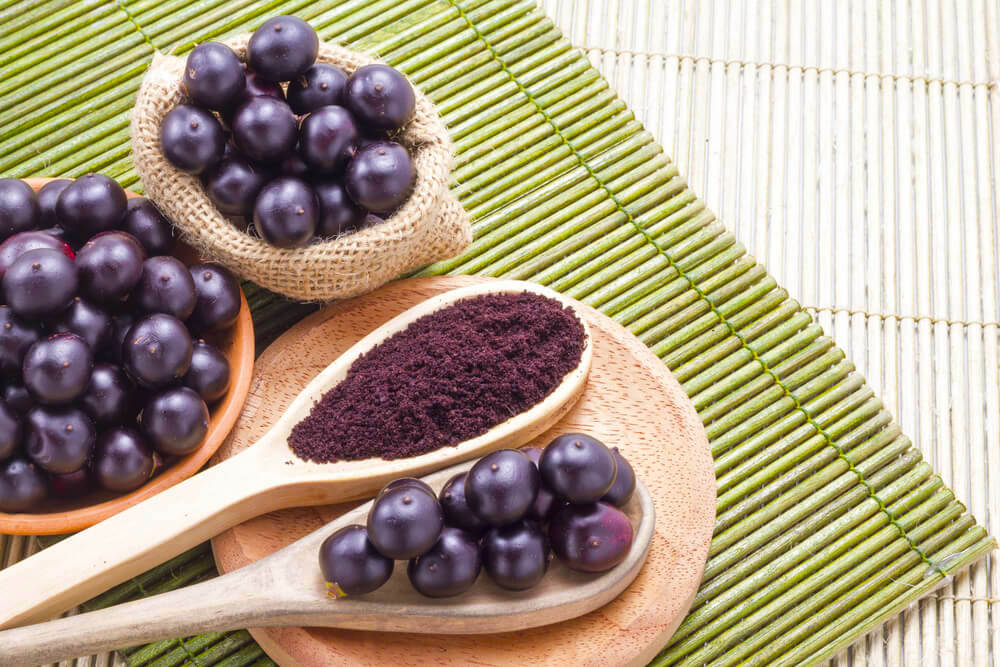
It is a well-known fact Vitamin A can be incredibly beneficial for eye health and good vision.
However, not many people know this component is directly or indirectly tied to regular functioning of all the vital organs in the body.
This is because Vitamin A has powerful antioxidant properties, which can assist your body in the purging of free radicals, those harmful agents that cause genetic damage to your cells and trigger a host of medical conditions.
Furthermore, optimal Vitamin A intake can fortify your immunity, which means your body will be better equipped to ward off various illnesses.
Vitamin A can be found in certain animal products, as well as plant-based food, in which case it’s known as beta carotene.
And one ingredient that is especially rich in this organ-pepping vitamin is the acai berry, a dark-hued fruit that hails from the Amazon region.
Because of its notable medicinal powers, this tropical berry has been consumed by the native people of Brazil for centuries.
Recently, it has become increasingly popular in health and wellness-conscious circles, which hail it as the new superfood du jour.
And for good reason, too: not only does the acai berry have numerous benefits for your body, it can also improve the appearance of your skin.
Due to high concentration of Vitamin A and other antioxidants, frequent consumption of acai berry can stave off various ailments, improve your digestion and cardiovascular activity and boost your energy levels.
When it comes to skin, the active ingredients found in acai berry can help reverse symptoms of aging such as fine lines and wrinkles.
The vitamins concentrated in this Amazonian treat can also reinforce skin’s protective barrier, which will help protect it from harmful environmental factors, such as the sun, pollution, harsh weather, etc.
Due to its rich, slightly bitter flavor, acai berry work well in combination with slightly sweeter ingredients.
It can be added to healthy dessert alternatives when you’re looking to add a punch of antioxidants to your after-meal treats.
The easiest way to consume the Brazilian berry is simply to throw it in a smoothie or breakfast bowl.
For added sweetness, chop up a banana or an apple, so your concoction isn’t too bitter.
Vitamin E in Blackberries Has Immense Reparative Properties
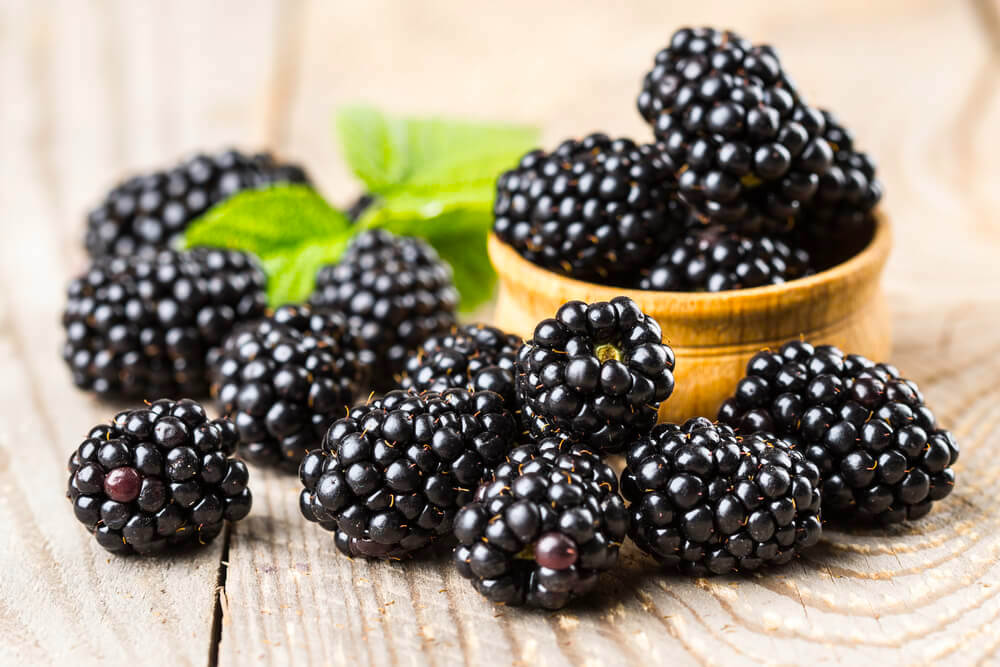
When it comes to reversing aging processes, one antioxidant in particular can be incredibly helpful: Vitamin E.
To begin with, this component can be notably beneficial for your cardiovascular system.
Vitamin E can help balance cholesterol levels and reduce chances of it oxidizing, as well as preventing thickening of the arteries.
Because of its powerful antioxidant properties, Vitamin E can effectively help in the fight against free radicals. This will in turn reduce chances of your body developing all kinds of medical issues, from common ailments to more serious conditions.
Having more Vitamin E in your diet can also transform your skin, hair and nails – making them healthier and more resistant to outside harms.
Due to its reparative powers, Vitamin E can help rejuvenate and heal damaged and irritated skin. Since Vitamin E is potent at accelerating cell regeneration, it can be used to treat sunburnt skin, scars and eczema.
Frequent consumption of this antioxidant will also boost hair growth, but also make your strands thicker and better equipped to fight off environmental damage. It can also do wonders for an itchy, flaky scalp.
And if you’re looking for ways to increase your daily intake of this powerful nutrient, you can always go down the easy road and take supplements.
However, to get the real deal, you should know that this vitamin can only be found in plant-based foods.
Luckily, berries represent one of the richest sources of Vitamin E.
Blackberries in particular pack a punch when it comes to Vitamin E concentration: one cup contains about 1.68 milligrams of this powerful antioxidant.
When it comes to meal ideas, blackberries can be consumed on their own and make for a great snack when you’re on the run.
However, if your mind the slightly sour flavor, you can always combine them with sweeter fruit (like mango or papaya, which also contain high concentration of Vitamin E) to make a delicious, antioxidant-packed smoothie.
You can also add blackberries to your favorite oatmeal or throw them in a fruit salad.
Other berries that contain high concentration of Vitamin E include:
- Cherries
- Strawberries
- Blueberries
- Raspberries
These mini bombs of antioxidants are bountiful during warm, sunny seasons and will make for a refreshing meal during scorching summer days.
Goji Berries are Rich in B Complex Vitamins
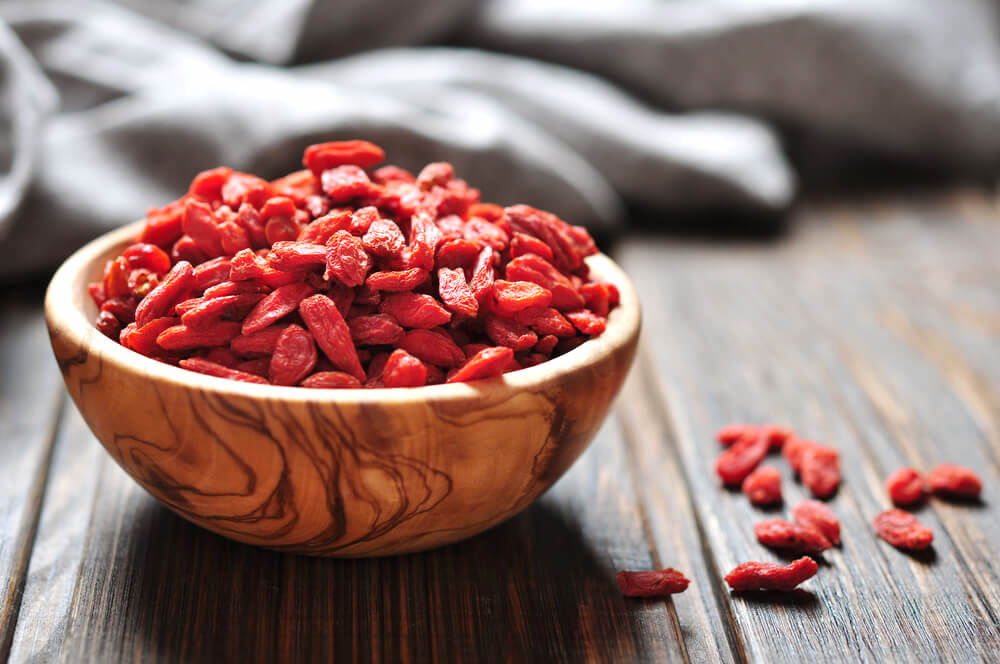
By B complex vitamins, people usually refer to the following compounds:
- B1 (thiamine)
- B2 (riboflavin)
- B3 (niacin)
- B5 (pantothenic acid)
- B6 (pyridoxine)
- B7 (biotin)
- B9 (folic acid)
- B12 (cobalamin)
And you’ll be delighted to hear that goji berries, a nutritious fruit that originates form Asia, contain even four of these super-charging agents, including vitamins B1, B2, B3 and B12.
And each of these has its own set of benefits for your health and your body.
For example, Vitamin B1 contributes to healthy digestive tract, but can also improve your nervous system, as well as skin, eyes and hair.
On the other hand, riboflavin or Vitamin B2 helps prevent cognitive decline, and it can also minimize symptoms of depression.
Vitamin B12 found in goji berries is one of the most important components for the healthy functioning of your organs. Regular Vitamin B12 consumption will keep energy levels high, but also regulate your mood.
This particular vitamin also reduces the risk of neurodegenerative diseases.
Since goji berries are still somewhat mysterious to the casual health food enthusiast, you might be wondering how you can include them in your day-to-day meals.
Luckily, this task is a lot easier than you think!
Just like any other berry, goji can be a welcome addition into various health-oriented meals, including smoothies, breakfast bowls or oat meals.
It can also be consumed on its own; however, if you’re looking to pack a punch of antioxidants, combine your goji berries with a handful of nuts like almonds, cashews or walnuts.
Have you been convinced of berries’ immense vitamin powers yet? Next time you find yourself at the fresh produce section, make sure to stock up on these super-charging nuggets. Your body will soon be thanking you!



